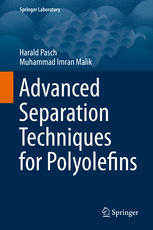

Most ebook files are in PDF format, so you can easily read them using various software such as Foxit Reader or directly on the Google Chrome browser.
Some ebook files are released by publishers in other formats such as .awz, .mobi, .epub, .fb2, etc. You may need to install specific software to read these formats on mobile/PC, such as Calibre.
Please read the tutorial at this link: https://ebookbell.com/faq
We offer FREE conversion to the popular formats you request; however, this may take some time. Therefore, right after payment, please email us, and we will try to provide the service as quickly as possible.
For some exceptional file formats or broken links (if any), please refrain from opening any disputes. Instead, email us first, and we will try to assist within a maximum of 6 hours.
EbookBell Team

5.0
100 reviewsThis Springer Laboratory volume introduces the reader to advanced techniques for the separation and fractionation of polyolefins. It includes detailed information on experimental protocols and procedures, addressing the experimental background of different polyolefin fractionation techniques in great detail. The book summarizes important applications in all major fractionation methods with emphasis on multidimensional analytical approaches. It comprises the most powerful modern techniques, such as high temperature size exclusion chromatography (HT-SEC) for molar mass analysis, temperature rising elution fractionation (TREF) and crystallization analysis fractionation (CRYSTAF) for the analysis of chemical composition and branching, high temperature two-dimensional liquid chromatography (HT-2D-LC), solvent and temperature gradient interaction chromatography (SGIC and TGIC) and crystallization elution fractionation (CEF). Beginners as well as experienced chromatographers will benefit from this concise introduction to a great variety in instrumentation, separation procedures and applications. With detailed descriptions of experimental approaches for the analysis of complex polyolefins, the readers are offered a toolbox to solve simple as well as sophisticated separation tasks. The book starts with an introduction into the molecular complexity of polyolefins - the most widely used synthetic polymers with rapidly growing production capacities. It systematically discusses crystallization based fractionation techniques including TREF, CRYSTAF and CEF and column chromatographic techniques for molar mass, chemical composition and microstructure, as well as the combination of different fractionations in multidimensional experimental setups. This book also includes basic information on the application of high-temperature field-flow fractionation.